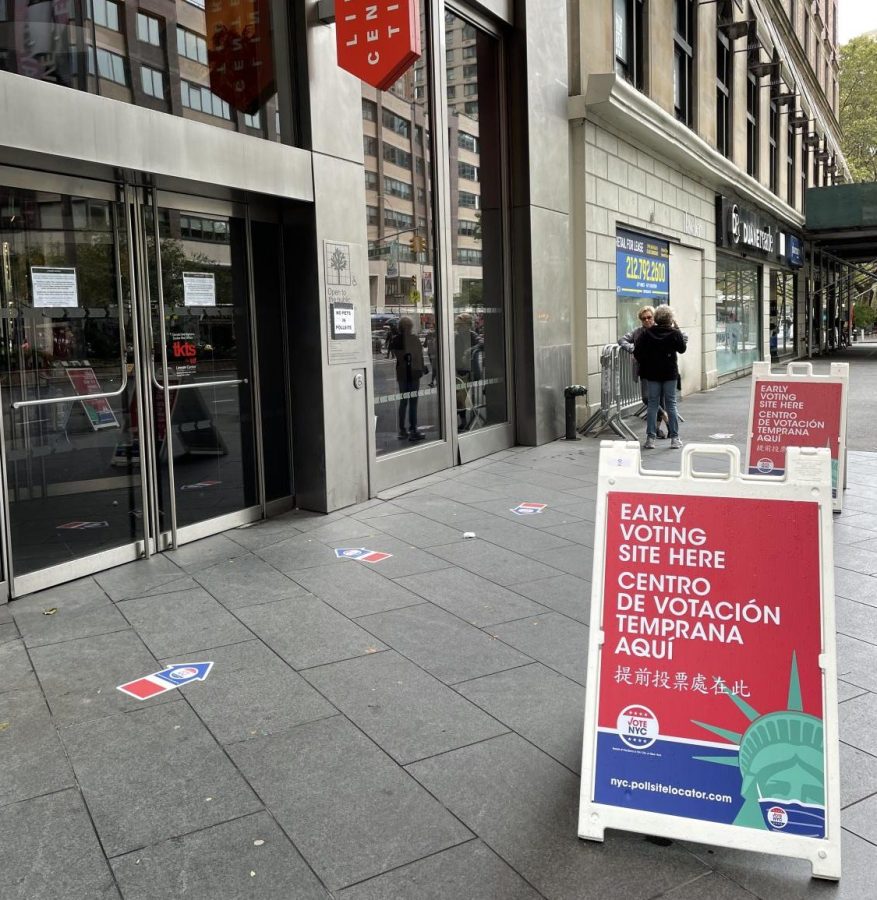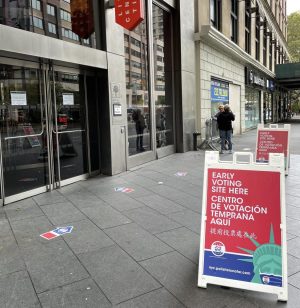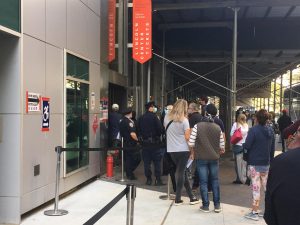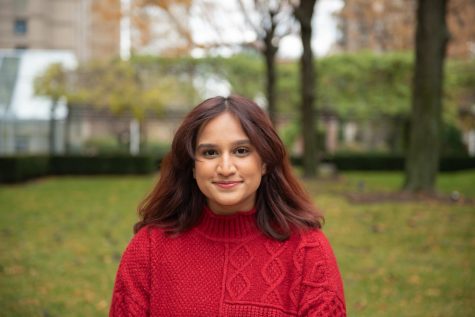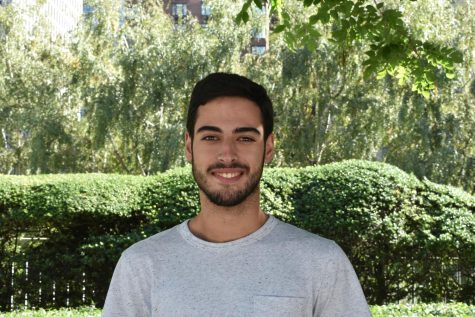Fordham Community Discusses Voting in 2021 NYC Mayoral Election
Plans for issues such as public safety, health care and homelessness are the most pressing to many students
New York City voters have an opportunity to determine the future of the city by choosing Eric Adams or Curtis Sliwa to be their next mayor.
November 2, 2021
On Nov. 2, New Yorkers will head to the ballot box to vote for the new mayor and determine the future of city politics. After a series of primary elections using ranked-choice voting, Eric Adams and Curtis Sliwa were determined as the Democratic and Republican party representatives, respectively. Bill Pepitone and Stacey Prussman represent third parties.
Christina Greer, associate chair of the political science department at Fordham, said the mayoral election is important to Fordham students because all politics are local.
“We’re all residents of New York City, so you want to know what the leadership is doing. You use facilities, so do you want a safe city or trash on the street? Do you care about a mayor with a vision for the environment? Every aspect of your life has to do with local politics,” she said.
Almost half of the undergraduate population at Fordham Lincoln Center are commuters, which means the policies enacted by the mayor’s office influence these students’ lives on campus and back home, as well as student residents who consider themselves New Yorkers.
Multiple commuter students expressed the growing homelessness issue in New York as a major concern for the upcoming election.
“Eric Adams is going to win because New York is already known to be a blue state and a majority of the youth who are eligible to vote share the sentiments he is expressing.”Yves Andradas, Fordham College at Lincolnc Center ’25
Lara Khan, Fordham College at Lincoln Center (FCLC) ’25 and a commuter from Long Island, said she plans to vote, noting how “elections are a chance to influence policy and electing the right leaders can help pass imperative issues.”
When referencing policies such as homelessness in the city, Khan said the city has failed to address it time and time again. Khan also mentioned how she hopes that in the future, it is possible to create a more knowledgeable voter base at Fordham by “educating voters, and especially students,” as she felt that she did not know the full range of policies to improve the homelessness epidemic in New York.
Yves Andradas, FCLC ’25 and a commuter from Brooklyn, said that he would “vote if he finds the opportunity but is not necessarily planning on going out of his way,” noting how “convenience” played the largest role in determining whether he would vote in this local mayoral election.
In fact, Andradas felt that his vote almost didn’t matter. “Eric Adams is going to win because New York is already known to be a blue state and a majority of the youth who are eligible to vote share the sentiments he is expressing,” he said.
The Candidates’ Plans to Confront Different Issues
Adams plans to rebuild trust in the New York Police Department (NYPD). He outlines major goals to reinvent the anti-crime unit as an anti-gun unit, strengthen handgun laws and publicize the list of cops being monitored for indiscipline to increase trust in the NYPD.
On the other side, Republican candidate Sliwa’s plan includes steps to “refund the police” and eventually increase the NYPD’s budget to tackle the increase in gun violence in NYC.
Adams plans to reconstruct the education system so that a remote learning option is a permanent option.
Adams has voiced his support to increase job training for high schoolers, create equity within each borough and allow for the option to have long term at-home learning. Sliwa is not convinced these plans are the best options for the future of New York’s educational system.
Instead, Sliwa called for improved higher education through three-year college degree pathways focused on making college financially accessible for residents, and for an increase in the number of charter schools, parochial schools and vocational training programs throughout the NYC school system.
The plan Sliwa outlined for improving the education system requires time in person within a classroom setting, meaning an option for online learning may be less likely. His K-12 plan targets 12 central goals centered around smaller class sizes, higher salaries for school employees, improved after-school programs and better opportunities for disadvantaged students.
“Curtis Sliwa has been a vigilante (since) the 1980s and a fixture in New York City politics but does not understand a homeless solution (for) New York City.”Christina Greer, associate chair of the political science department at Fordham
Comparatively, Adams plans to reconstruct the education system so that a remote learning option is a permanent option, dramatically changing the idea of a New York City education. Additionally, he plans to invoke tests screening for dyslexia and to support students with disabilities more to “end the prison pipeline.”
When it comes to homelessness in the city, the major party candidates have contrasting viewpoints. Adams proposes the conversion of borough hotels into supportive housing for the homeless, while Sliwa views upstate work programs as the most viable option.
Sliwa also aims to include on-site mental and health counselors, “mini-home” units and employment search requirements for residents in homeless shelters. Adams’s plan involves turning outer-borough hotel rooms into studio apartments and includes mental health and substance abuse assistance for residents.
Greer said she felt that “Curtis Sliwa is not a reliable candidate,” in regards to the homelessness epidemic. “Curtis Sliwa has been a vigilante (since) the 1980s and a fixture in New York City politics but does not understand a homeless solution (for) New York City.”
Greer said that it will take more than one individual figure to tackle the homlessness crisis in NYC, and fostering honest conversations in communities about homelessness will be effective. In the wake of the COVID-19 pandemic, the candidates’ plans for health care are another contrasting point. Adams has been a longtime supporter of vaccine mandates for city workers, going as far as to suggest negotiated mandates with worker unions. Although Sliwa is vaccinated and encourages others to be as well, he does not support vaccine mandates. According to Sliwa, mandates will lead to staffing shortages for both city posts and public education.
“With EMTs and the New York Fire Department, it is ideal if they’re all vaccinated. Every single public health expert and medical personnel has said the only way we get out on the other side of a global pandemic is for people to be vaccinated,” Greer said. “So if they’ve chosen to be a city employee, they need to get vaccinated, and that is a city policy.”
The upcoming mayoral election is filled with complex issues, including policies such as improving homeless conditions, education, COVID-19 policies and more. In the midst of this election, Fordham students are able to use their vote to help determine the future of the city.

